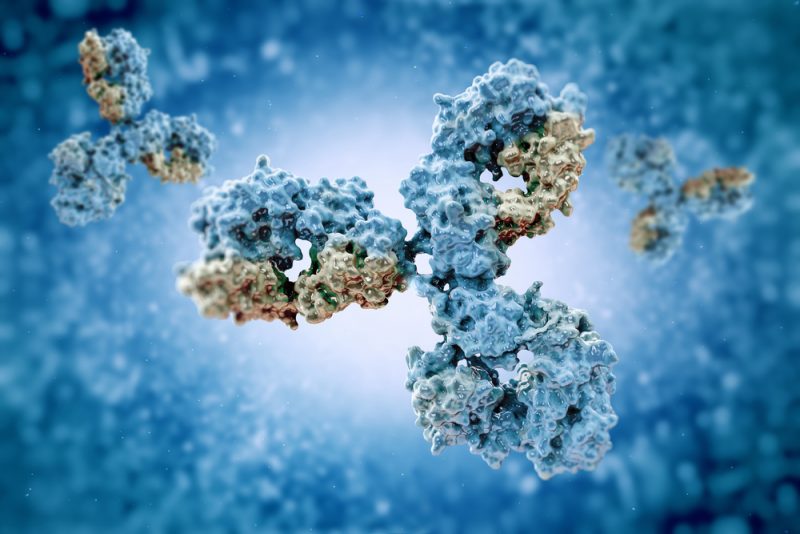Esbriet Slows IPF Progression Regardless of Self-reactive Antibodies

Esbriet (pirfenidone) appears to slow the progression of idiopathic pulmonary fibrosis (IPF) regardless of the presence of autoantibodies, which might mean the therapy can work even when IPF is linked to an autoimmune disease, a study suggests.
The study, “Effectiveness of pirfenidone in idiopathic pulmonary fibrosis according to the autoantibody status: a retrospective cohort study,” was published in the journal BMC Pulmonary Medicine.
In an autoimmune disease, the body’s immune system starts attacking other tissues and organs by making autoantibodies — self-reactive antibodies that wrongly target one’s own proteins. If an autoimmune disease affects the lungs, it can cause lung tissue to scar or stiffen, leading to pulmonary fibrosis.
Autoantibodies are present in up to 41% of patients with IPF, the researchers wrote, but “to date, little is known about the clinical implications of autoantibody positivity in IPF.”
In particular, it is not known whether the presence of autoantibodies may affect response to treatment with an anti-fibrotic medication like Esbriet. Marketed by Genentech, Esbriet is an approved IPF therapy that has been shown to slow disease progression in clinical trials.
In this study, researchers looked back at the medical records of 276 patients who were diagnosed with IPF after excluding other possible diagnoses. Exclusion of known causes, including connective tissue disorders — any disease involving the tissue that supports and holds organs together — is important because they may affect treatment and the likely course of a disease.
All patients were being treated at a tertiary care hospital in South Korea from January 2013 to March 2018.
Of the 276 patients, 92 had never received Esbriet and 184 were being treated with Esbriet. Of those being treated with Esbriet, 142 had been receiving the medication for more than six months. Only those treated for more than six months were included in the analysis.
Of the 142 patients treated with Esbriet for more than six months, 93 had autoantibodies, while 49 did not. Their mean age was 69.5 years, and more than three-quarters (77.5%) were men.
The autoantibody status was considered positive if a test detected the presence of anti-neutrophil cytoplasmic antibodies (ANCA) that target certain blood cells, or autoantibodies linked to interstitial pneumonia with autoimmune features. The interstitium is the tissue and space around the air sacs found within the lungs.
The average dose of Esbriet was similar in the autoantibody-positive (1,183.5 mg) and autoantibody-negative (1,185.6 mg) groups.
To study the effect of Esbriet, researchers looked at forced vital capacity (FVC), which measures how much air a person is able to exhale after a deep breath, and to the diffusing capacity for carbon monoxide (DLCO), which assesses the lungs’ ability to transfer oxygen to the bloodstream. Both measures were adjusted for age, sex, height, and weight.
“The adjusted mean changes in FVC and DLCO over one year did not differ between the two patient groups,” the researchers wrote.
Furthermore, when researchers compared the adjusted mean changes in FVC between autoantibody-positive patients treated with Esbriet, and those who had never received Esbriet, they found that FVC declined more in those who had never received the medication.
“The change in FVC among autoantibody-positive patients treated with pirfenidone was smaller than in those who were never treated with it,” the researchers wrote.
Because not all patients were tested for all possible autoantibodies, it is possible that some patients included in the autoantibody-negative group actually could have autoantibodies. This and other limitations, such as the more frequent use of corticosteroids to reduce inflammation in the autoantibody-positive group, warrant the study’s “replication in larger and more diverse” patient groups, the investigators wrote.
“We found that pirfenidone slowed the progression of IPF, independent of the autoantibody status. We suggest that patients with IPF who do not respond to pirfenidone should be reevaluated for underlying autoimmune diseases,” they concluded.







